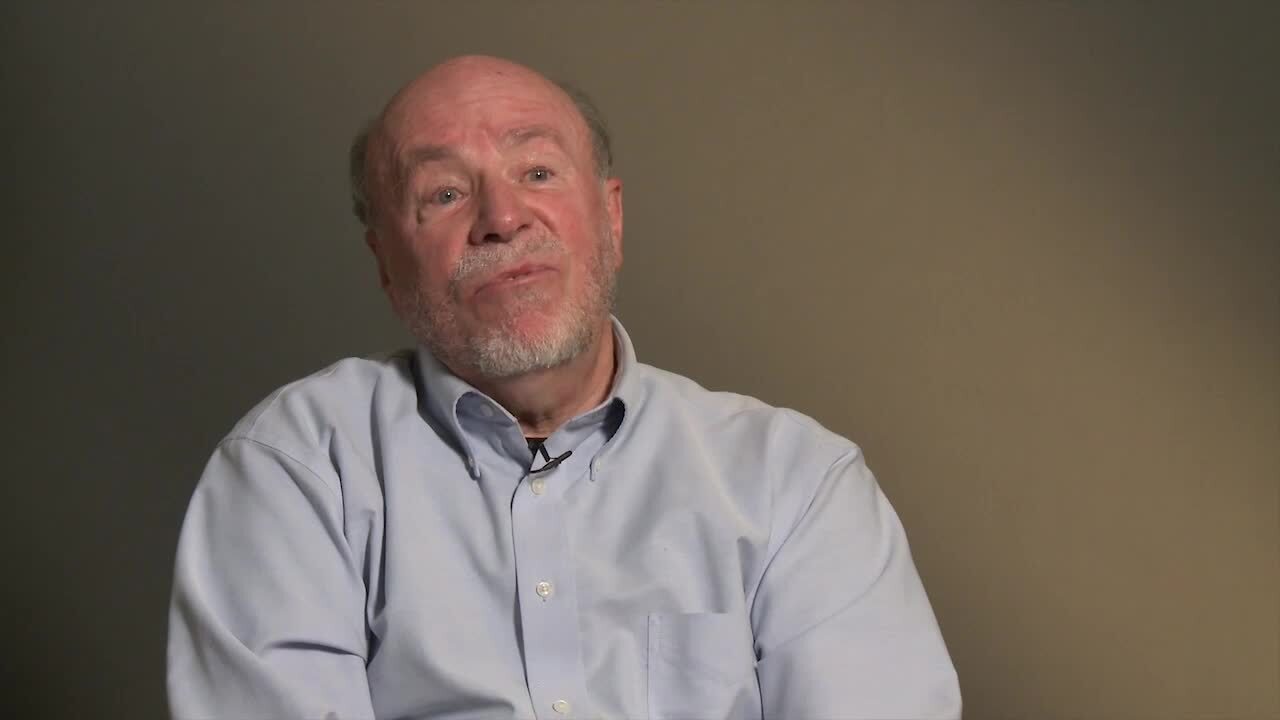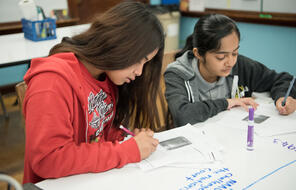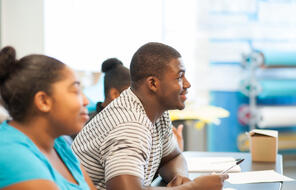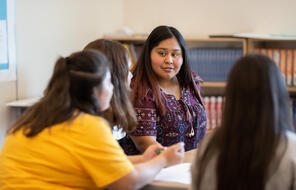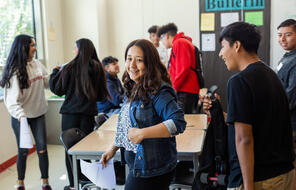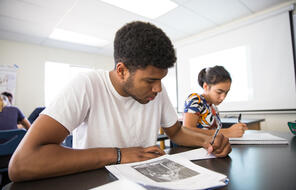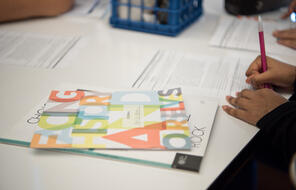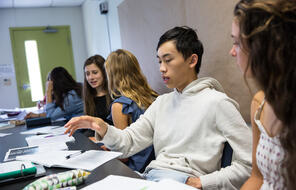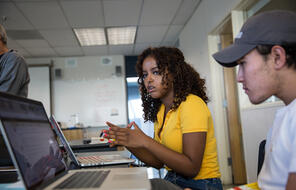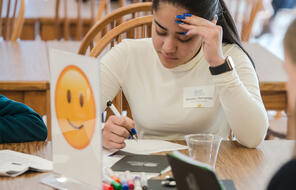Hi, my name is Doc Miller, and I work here at Facing History and Ourselves. I was a classroom teacher for 36 years, and for over 20 of those years, a Facing History and Ourselves teacher. And I'd like to talk briefly about our scope and sequence. Our scope and sequence we often refer to as our journey. And that's what it is with the students.
In our scope and sequence in Facing History and Ourselves, we start off-- and we always start off-- with identity. The question I would ask the students is, let's explore identity, and let's look at how society shapes an individual. How does society influence an individual? I have to tell you, it's a privilege to explore that question with students, and get them to step back and look at their own identities, and how they were shaped, and how others influence them. And it proves to be one that students really enjoy getting into. I think it's important, as we start this scope and sequence, to move through that.
We move from identity to the issue of we and they, often referred to as membership. The question I would always ask in doing this section of Facing History and Ourselves is, why do we humans so often divide ourselves into us and them, into we and they? What is it about that? Is that a bad thing? Can we look at ourselves as part of a group, and look at other groups, and still have a respect for them? So I think that we and they and membership is key to understanding Facing History and Ourselves.
From there, we move into the historical case study. And in looking at the historical case study-- in this case, you'll be looking at the Holocaust, which we'll be doing together and we did in our classes-- what we do here is use many primary sources to explore the history. And it's so important to look at this. We start looking at World War I, and moving into right after World War I and the creation of the Weimar Republic.
The fragility of democracy-- this was a nation that for the first time was exploring a democracy. And we look at how that unfolded. We look at a small group of men who formed the Nazi Party in 1919, 1920, and look at how in 13, 14 years they rose to power. How could that have happened? Especially with some of the ideas that they had even early in the game.
Once they move into power, we then look at how did they create a totalitarian society? How did they get total control over the people of Germany? And that takes place primarily between 1933 and '39. We then move in, in '39, World War II begins. And we explore that, and look at the tragic consequences that, of course, led to the Holocaust. It's difficult history, but it's important to look at. And it's a privilege to do it in such a thoughtful way with students.
After the war, we move and look at the issue of judgment and justice. And that's the next part of our scope and sequence. After something as horrible as the Holocaust, is it even possible to have justice? What does judgment mean? Is reconciliation in any way possible? These important issues are explored with students.
From there, we look at the issues of memory and legacy. After studying this history, what have we learned? What does it mean for our own lives? What do we get out of it? What's the legacy of this history? Throughout the Facing History and Ourselves program, we're always looking at our own lives. Look at the title, Facing History and Ourselves. We're coming back to really explore human behavior. And so we ask ourselves, what is the legacy? What have we learned from this history?
And then always, in Facing History and Ourselves-- and I think this is a powerful piece-- our final part is choosing to participate. What does this study mean for me and for our society today? What does it mean for the decisions that I have to make and that we have to make as a society to choose to create a more just and compassionate world?
So as we move through this whole scope and sequence, it's really-- first of all, I'll tell you as educators, you're fortunate. I can't tell you how privileged I feel to have done this work with students, and to be lucky enough to explore this important history. And using this road map, this journey, of the scope and sequence has proved to be very effective and very powerful.
